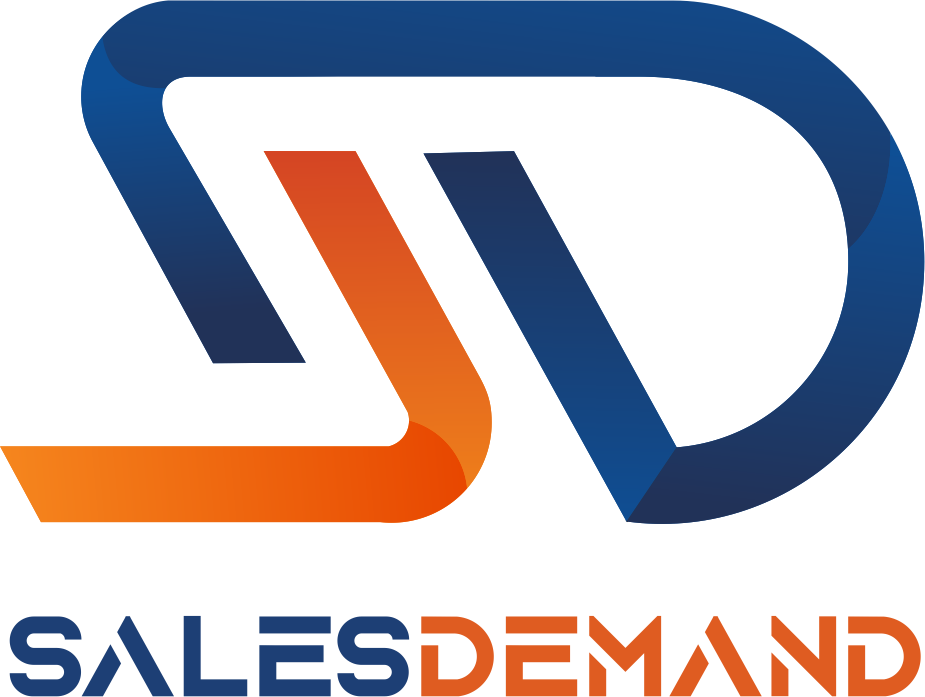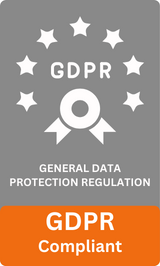
For a long time, the instinctive response to any question was, ‘I’ll Google it.’ For nearly two decades, Google has been the unquestioned gateway to finding answers, discovering content, and navigating the internet. It shaped how users consume information and how businesses build visibility. From keyword-heavy blogs to schema-rich pages, Google decided what visibility looked like, and the world complied.
But then something changed.
AI arrived.
And search changed with it, rapidly, visibly, and irreversibly.
Tools like ChatGPT, Perplexity, Claude, Gemini, and Grok made searching conversational. Instead of multiple clicks, users started expecting direct answers. Instead of lists of links, they preferred summaries, recommendations, and actions. Instead of browsing, they wanted solutions in one message.
This shift created the ultimate question for 2026:
Who leads search in 2026, AI or Google?
And more importantly, what does this shift mean for businesses, marketers, and the entire digital ecosystem?
Table of Contents
Toggle1. Who Leads Search in 2026: AI or Google?
As we move further into 2026, the race for search dominance is no longer just about who shows the best results, it’s about who understands the user better. Google still controls the traditional search engine market, but AI-driven platforms have changed the expectations, the behavior, and the overall intent behind every search. Today, users want clarity instead of complexity, direction instead of links, and conversations instead of pages.
This shift has created a real and measurable split in search patterns. People increasingly turn to AI tools for learning, decision-making, and deep-dive queries, while Google remains the go-to for navigation, local results, and transactional intent. The question is no longer whether AI will influence search, it’s how deeply it will define it.
So, who truly leads search in 2026?
It depends on how we define “search.” If search means finding a webpage, Google still stands strong. But if search means getting an answer, clarifying a thought, or making a decision, then AI platforms have already stepped ahead. In 2026, leadership in search is shifting from a link-based ecosystem toward an answer-driven, insight-led, conversational model powered by AI.
And that change is reshaping the digital world more quickly than any shift we’ve seen in the last two decades.
2. How Search Has Evolved: From Keywords to Conversations
Search didn’t become advanced overnight. In the early 2000s, users typed simple and fragmented keywords because search engines needed queries to be machine-friendly. A user searching for a CRM tool might type “best CRM India” or “CRM software B2B,” and Google responded with a list of links. It was functional, but the interaction was mechanical. Search engines dictated how users phrased queries, not the other way around.
Over the next decade, Google became smarter. With updates like RankBrain and BERT, search engines started understanding meaning rather than just words. Queries became more conversational, something closer to how people naturally think. Instead of typing “lead generation agency,” users started asking “Which lead generation agency is best for tech companies?” Search intent became the foundation of ranking, and Google rewarded websites that answered user needs more clearly.
Then came the AI era. Instead of searching, users began asking questions. Instead of browsing multiple websites, they expected complete answers in one place. Tools like ChatGPT and Perplexity didn’t offer ten links; they offered summaries, recommendations, and insights. Search evolved from keywords to intent and finally to intelligence, and AI became the center of this shift.
3. The Decline of Google’s Search Dominance
Google is still massive and influential, but its absolute dominance is undeniably shrinking. The biggest reason is simple: AI tools give answers, while Google gives options. When a marketer asks, “Create a lead generation strategy for a SaaS business,” Google shows articles, while AI builds a customized strategy instantly. Convenience has become the new currency in search, and AI delivers it far better.
Another challenge for Google is the rise of zero-click searches. Today, more than half of Google searches end without a single website visit because users get the information directly from snippets, People Also Ask sections, or AI summaries on the results page. This behavior unintentionally conditions users to expect complete answers without clicking links, something AI tools offer even more efficiently.
The younger workforce is also accelerating the shift. Gen Z and Gen Alpha do not want to scroll through pages of links. They prefer interactive, conversational, and instant results. AI feels more personal because it remembers previous queries, understands context, and continues conversations. Google, despite its giant network, cannot replicate that experience in the same way.
4. What This Shift Means for Businesses and Marketers
The rise of AI-driven search fundamentally changes how businesses need to approach digital visibility. Traditional SEO still matters, but it is no longer enough on its own. Content must now be created with AI engines in mind, ensuring that it is easy to interpret, summarize, and contextualize. This is where GEO (Generative Engine Optimization) becomes essential. AI tools rely heavily on clarity, structure, accuracy, and depth, which means brands must produce content that is both informative and easy for AI to understand.
In addition, AEO (Answer Engine Optimization) is becoming critical. AI platforms prefer content that directly answers user questions, includes clear definitions, and provides structured explanations. Businesses that create straightforward, high-value content are more likely to be cited or summarized by AI engines.
However, one thing hasn’t changed, originality still matters. AI tools can rewrite information, but they still rely on human-created insights such as case studies, unique viewpoints, first-hand experiences, and industry expertise. These elements help brands build authority in the new search landscape.
Finally, visibility no longer lives on Google alone. Information now flows across multiple platforms, from AI-generated summaries to LinkedIn posts, YouTube content, and research-based tools like Perplexity. Marketers must adapt to a decentralized search ecosystem where AI plays an active role in distributing their content.
5. Does Google Still Matter in 2026?
Yes, and in some ways, more than ever. Google continues to dominate when it comes to local searches, product research, reviews, transactional queries, and real-time information. It remains the world’s largest digital index and a reliable discovery platform. For many industries, especially e-commerce, legal, financial, and news-driven domains, Google remains essential.
However, its role is no longer that of the “first stop.” Users now tend to approach AI tools for initial answers and return to Google only for verification, exploration, or deeper research. This means Google becomes the place to confirm or cross-check information rather than the place to start searching.
Google’s strength lies in its trust, its infrastructure, and its ability to index vast amounts of content, none of which disappear in 2026. But its influence is shared now, not singular.
Conclusion:
Search in 2026 is no longer a one-platform experience.
AI wins because it understands the user.
Google survives because it understands the internet.
Businesses that adapt to this dual ecosystem, SEO (Google), AEO (answers), and GEO (AI engines), will dominate digital visibility in the coming decade.
The leaders of search in 2026 are not one or the other.
It’s both, but AI comes first.
I hope you find the above content helpful. For more such informative content, please visit SalesDemand.
FAQs:
1.How is online search changing in 2026 compared to the past decade?
Online search in 2026 has shifted from simple keyword matching to conversational, intent-based discovery. Instead of typing short queries, users now ask full questions or request solutions, and AI tools provide direct, context-aware answers. This evolution has made search faster, more intuitive, and more personalized than ever.
2.What is the biggest reason users are shifting from Google to AI-powered search tools?
The primary reason is efficiency. AI-powered platforms like ChatGPT, Perplexity, and Gemini deliver instant, synthesized answers without requiring users to browse through multiple websites. People prefer curated, conversational results over long lists of links, especially for complex topics, decision-making, research, and content generation.
3. How do SEO, AEO, and GEO differ, and which one should businesses prioritize in 2026?
- SEO (Search Engine Optimization) focuses on ranking webpages on Google.
- AEO (Answer Engine Optimization) targets Google’s featured snippets and quick answers.
- GEO (Generative Engine Optimization) helps content appear in AI-driven search outputs like ChatGPT, Perplexity, and Gemini.
In 2026, businesses should prioritize GEO-first, then support it with AEO, and finally build a strong SEO foundation. This layered approach ensures visibility across all search platforms — from AI models to traditional engines.
4. Will AI search engines completely replace Google in the next few years?
Not entirely. While AI search tools now lead in engagement, depth, and direct answers, Google still dominates in navigation, local results, ecommerce queries, and high-trust transactional searches. Instead of replacement, the market is shifting toward a shared search ecosystem where AI tools handle research and Google covers intent-based browsing.
5. How can B2B companies optimize their content for conversational and AI-driven search?
B2B companies should focus on:
- Writing clear, conversational, context-rich explanations.
- Creating original insights, frameworks, and examples that AI can cite.
- Covering full user journeys instead of surface-level facts.
- Adding data, opinion, perspectives, and clarity, which AI models value highly.
- Publishing topical authority clusters instead of isolated articles.
This approach makes brands more discoverable across AI engines and increases digital visibility.
6. What type of content performs best on AI assistants like ChatGPT, Gemini, and Perplexity?
AI assistants prefer content that is:
- Deep, expert-led, and insight-driven
- Structured and easy to understand
- Rich in context, examples, and user intent alignment
- Non-fluffy and solution-focused
Such content is more likely to be referenced, summarized, or recommended by generative search engines.








